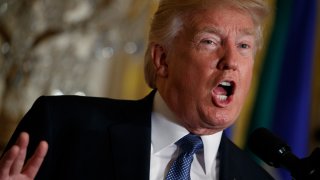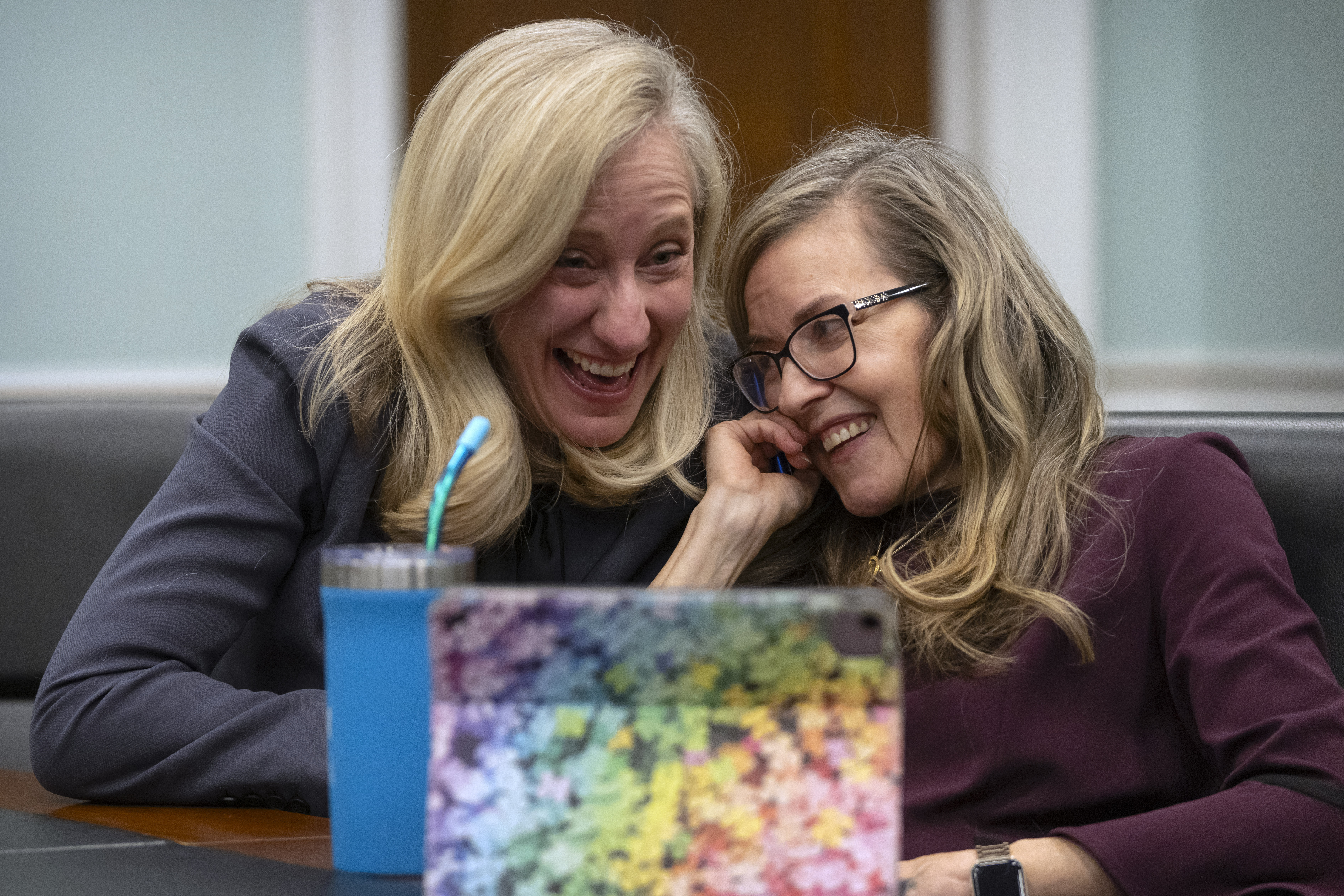
Donald Trump threw up his hands in frustration Tuesday as a judge scheduled his criminal trial for March 25, putting the former president and current candidate in a Manhattan courtroom in the heat of next year’s presidential primary season.
Trump, appearing by video conference at a pretrial hearing in the hush-money case, glowered at the camera as New York Judge Juan Manuel Merchan advised him to cancel all other obligations for the duration of the trial, which could last for several weeks.
Trump, wearing a blue suit against a backdrop of American flags at his Florida estate, then turned to a lawyer by his side — their brief discussion inaudible on the video feed — before sitting with his arms folded for the remainder of the hearing.
Get top local stories in Southern California delivered to you every morning. >Sign up for NBC LA's News Headlines newsletter.
Trump had pleaded not guilty last month to 34 felony counts of falsifying business records at his family company, the Trump Organization.
Trump has made the New York case and the long list of other investigations he faces central to his campaign to reclaim the White House, portraying himself as the victim of a coordinated effort to sully his chances. Trump often discusses the cases at his rallies and in other speeches, and has repeatedly attacked prosecutors and judges by name.
At Tuesday's hearing, Merchan reviewed an order barring Trump from publicly disseminating certain evidence turned over by prosecutors.
U.S. & World
News from around the country and around the globe
Trump was spared a personal appearance at the courthouse, avoiding the mammoth security and logistical challenges that accompanied his arraignment last month. Instead, the Republican was connected by video conference, with his face beamed onto courtroom TV monitors.
Trump is allowed to speak publicly about the criminal case, according to Merchan’s order, but he risks being held in contempt if he uses evidence turned over by prosecutors in the pretrial discovery process to target witnesses or others involved in the case.
Trump faces 34 felony counts of falsifying business records related to payments his company made to his former lawyer, Michael Cohen. Prosecutors say those payments were intended to reimburse and compensate Cohen for orchestrating hush money payments during the 2016 campaign to bury allegations of extramarital sexual encounters. Trump denies having had extramarital flings and says the prosecution is politically motivated.
Merchan’s protective order bars Trump and his lawyers from disseminating evidence to third parties or posting it to social media, and it requires that certain sensitive material shared by prosecutors be kept only by Trump’s lawyers, not Trump himself.
Prosecutors sought the order soon after Trump’s arrest, citing what they say is his history of making “harassing, embarrassing, and threatening statements” about people he’s tangled with in legal disputes.
Merchan, noting Trump’s “special” status as a former president and current candidate, has made clear that the protective order shouldn’t be construed as a gag order and that Trump has a right to publicly defend himself.
Trump’s lawyers are seeking to have his criminal case moved to federal court. It will continue in state court while that plays out.



